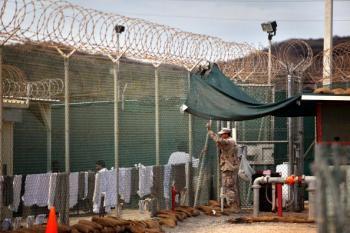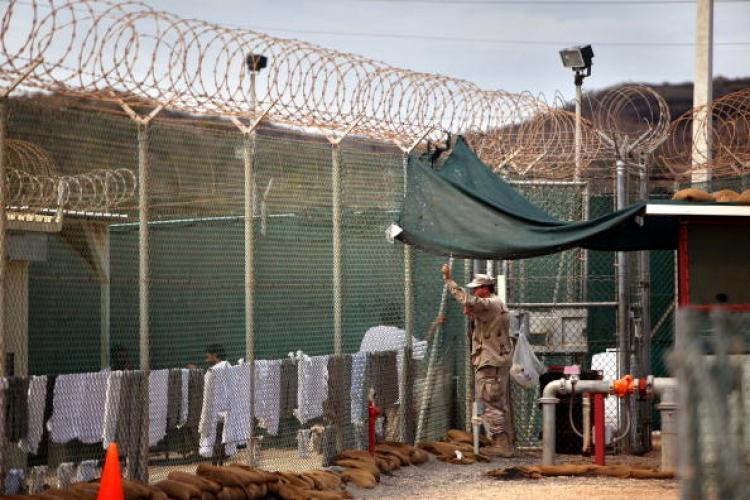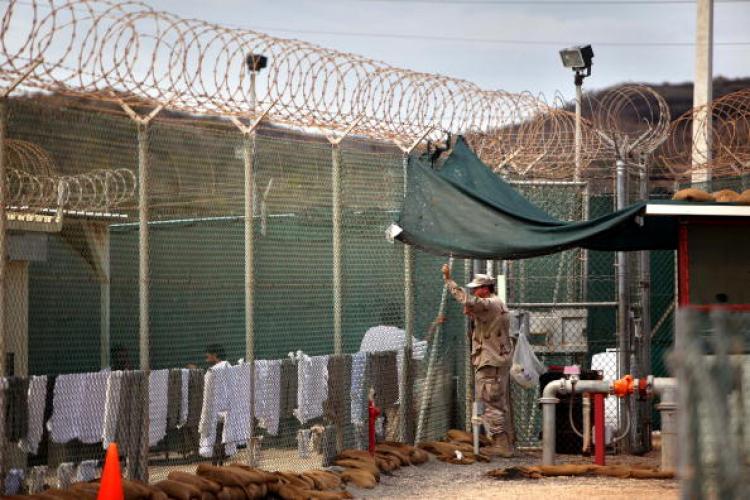NEW YORK—President Barack Obama and former Vice President Dick Cheney clashed in their views over national security and Guantanamo Bay Thursday in separate back-to-back speeches.
Obama said his administration was intent on cleaning up the “mess” from the Bush era during his speech at the National Archives Museum in Washington, D.C.
He said the Bush government made national security decisions “based upon fear rather than foresight and all too often trimmed facts and evidence … In other words, we went off course.”
Obama defended his decision to close the Guantánamo prison in Cuba, saying it weakened American national security, rather than ensure safety. He said the Military Commission will be reformed and a new legal framework created to detain terrorists. More information will be declassified, he said, defending his decision to release interrogation memos recently. Other information will remain under wraps, such as the prisoner photos he objected to releasing last week.
“These are dramatic changes that will put our approach to national security on a surer, safer and more sustainable footing, and their implementation will take time,”Obama said.
Former vice president and secretary of defense, Dick Cheney, spoke directly after Obama, at the American Enterprise Institute, Washington D.C. Cheney defended the Bush policies and accused Obama of taking a soft approach that will undermine security.
“To the very end of our administration, we kept al-Qaeda terrorists busy with other problems,” Cheney said. He remains a strong proponent for the interrogation program, and critisized Obama for his decision to close Guantanamo, saying it was done with little deliberation and no plan.
“To completely rule out enhanced interrogation methods in the future is unwise in the extreme. It is recklessness cloaked in righteousness, and would make the American people less safe,” Cheney said.
Guantanamo Closing
Obama said the costs of keeping Guantanamo open far exceed the complications involved in closing it.
“In the long run we also cannot keep this country safe unless we enlist the power of our most fundamental values,” he said. The prison has been ordered closed by early 2010.
Democrat Senator Patrick Leahy (D-Vt.), Chairman, Senate Judiciary Committee said under the current regime, the country’s ability to respond with moral authority was lost if other countries should mistreat American soldiers or civilians.
“Only by shutting the Guantanamo facility down and restoring tough but fair procedures can we repair our image in the world,” he said.
Leahy endorsed the American justice system as able to handle Guantanamo detainees.
“Our criminal justice system handles extremely dangerous criminals, and more than a few terrorists, and it does so safely and effectively,” he said.
Senator Richard Shelby (R-AL) called the release of Guantanamo detainees onto American soil reckless.
“The detainees at the Guantanamo Bay Detention Facility are terrorists,” he said. “We should not let this Administration, or anyone else, threaten our national security by releasing them into the United States. If this is even being considered, the decision to release these terrorists into our country is both reckless and clearly contrary to the will of the American people.”
U.S. Senator Jeff Sessions (R-AL), rejected the Obama’s contention that the approach to fighting terrorism has been ineffective.
“I continue to be troubled that the president and certain Democratic leaders use rhetoric that creates an image of a military that was systematically torturing prisoners,” said Sessions in a statement.
“In truth, a comprehensive investigation found that there has not been a single instance of waterboarding at Guantanamo Bay.”
Military Commission Criticized by Rights Groups
Determining the policy for dealing with current Guantanamo detainees is underway, Obama said. The federal court system and the Military Commission will be used, he said, while other procedures need to be worked out.
“As we make these decisions, bear in mind the following fact: nobody has ever escaped from one of our federal “supermax” prisons, which hold hundreds of convicted terrorists,” Obama said.
The use of the Military Commission has been slammed by rights organizations. Amnesty International’s executive director Larry Cox said revising the military commissions is a mistake.
“It is a system so broken, so discredited, that it cannot be saved by any amount of administrative or legislative duct tape,” he said.
American Civil Liberties Union, executive director, Anthony D. Romero, agreed.
“These military commissions are inherently illegitimate, unconstitutional and incapable of delivering outcomes we can trust. Tweaking the rules of these failed tribunals so that they provide ’more due process’ is absurd.”







